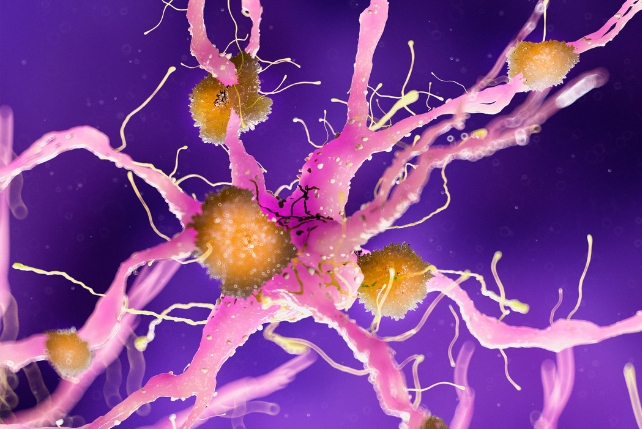We spend a 3rd of our lives asleep. And 1 / 4 of our time asleep is spent dreaming. So, for the common individual alive in 2022, with a life expectancy of round 73, that clocks in at simply over six years of dreaming.
But, given the central function that dreaming performs in our lives, we nonetheless know so little about why we dream, how the mind creates goals, and importantly, what the importance of our goals could be for our well being – particularly the well being of our brains.
My 2022 research, revealed in The Lancet’s eClinicalMedicine journal, confirmed that our goals can reveal a shocking quantity of details about our mind well being.
Extra particularly, it confirmed that having frequent dangerous goals and nightmares (dangerous goals that make you get up) throughout center or older age, could also be linked with an elevated danger of creating dementia.
Within the research, I analyzed knowledge from three massive US research of well being and growing older. These included over 600 folks aged between 35 and 64, and a couple of,600 folks aged 79 and older.
All of the members had been dementia-free at first of the research and had been adopted for a median of 9 years for the middle-aged group and 5 years for the older members.
In the beginning of the research (2002-12), the members accomplished a variety of questionnaires, together with one which requested about how typically they skilled dangerous goals and nightmares.
I analyzed the info to seek out out whether or not members with a better frequency of nightmares initially of the research had been extra prone to go on to expertise cognitive decline (a quick decline in reminiscence and considering abilities over time) and be identified with dementia.
Weekly nightmares
I discovered that middle-aged members who skilled nightmares each week, had been 4 instances extra prone to expertise cognitive decline (a precursor to dementia) over the next decade, whereas the older members had been twice as prone to be identified with dementia.
Curiously, the connection between nightmares and future dementia was a lot stronger for males than for ladies.
For instance, older males who had nightmares each week had been 5 instances extra prone to develop dementia in contrast with older males reporting no dangerous goals.
In ladies, nonetheless, the rise in danger was solely 41 %. I discovered a really related sample within the middle-aged group.
Total, these outcomes recommend frequent nightmares could also be one of many earliest indicators of dementia, which might precede the event of reminiscence and considering issues by a number of years and even many years – particularly in males.
Alternatively, it’s also attainable that having common dangerous goals and nightmares would possibly even be a reason for dementia.
Given the character of this research, it’s not attainable to make certain which of those theories is right (although I think it’s the former). Nevertheless, no matter which concept seems to be true – the key implication of the research stays the identical, that’s, that having common dangerous goals and nightmares throughout center and older age could also be linked to an elevated danger of creating dementia later in life.
The excellent news is that recurring nightmares are treatable. And the first-line medical remedy for nightmares has already been proven to lower the build-up of irregular proteins linked to Alzheimer’s illness.

There have additionally been case reviews displaying enhancements in reminiscence and considering abilities after treating nightmares.
These findings recommend that treating nightmares would possibly assist to sluggish cognitive decline and to stop dementia from creating in some folks. This will probably be an necessary avenue to discover in future analysis.
The subsequent steps for my analysis embrace investigating whether or not nightmares in younger folks may also be linked to elevated dementia danger. This might assist to find out whether or not nightmares trigger dementia, or whether or not they’re merely an early register some folks.
I additionally plan to analyze whether or not different dream traits, comparable to how typically we keep in mind our goals and the way vivid they’re, may also assist to find out how doubtless individuals are to develop dementia sooner or later.
The analysis may not solely assist to make clear the connection between dementia and dreaming, and supply new alternatives for earlier diagnoses – and probably earlier interventions – however it could additionally shed new gentle on the character and performance of the mysterious phenomenon that we name dreaming.![]()
Abidemi Otaiku, NIHR Tutorial Scientific Fellow in Neurology, College of Birmingham
This text is republished from The Dialog below a Inventive Commons license. Learn the unique article.
An earlier model of this text was revealed in September 2022.

